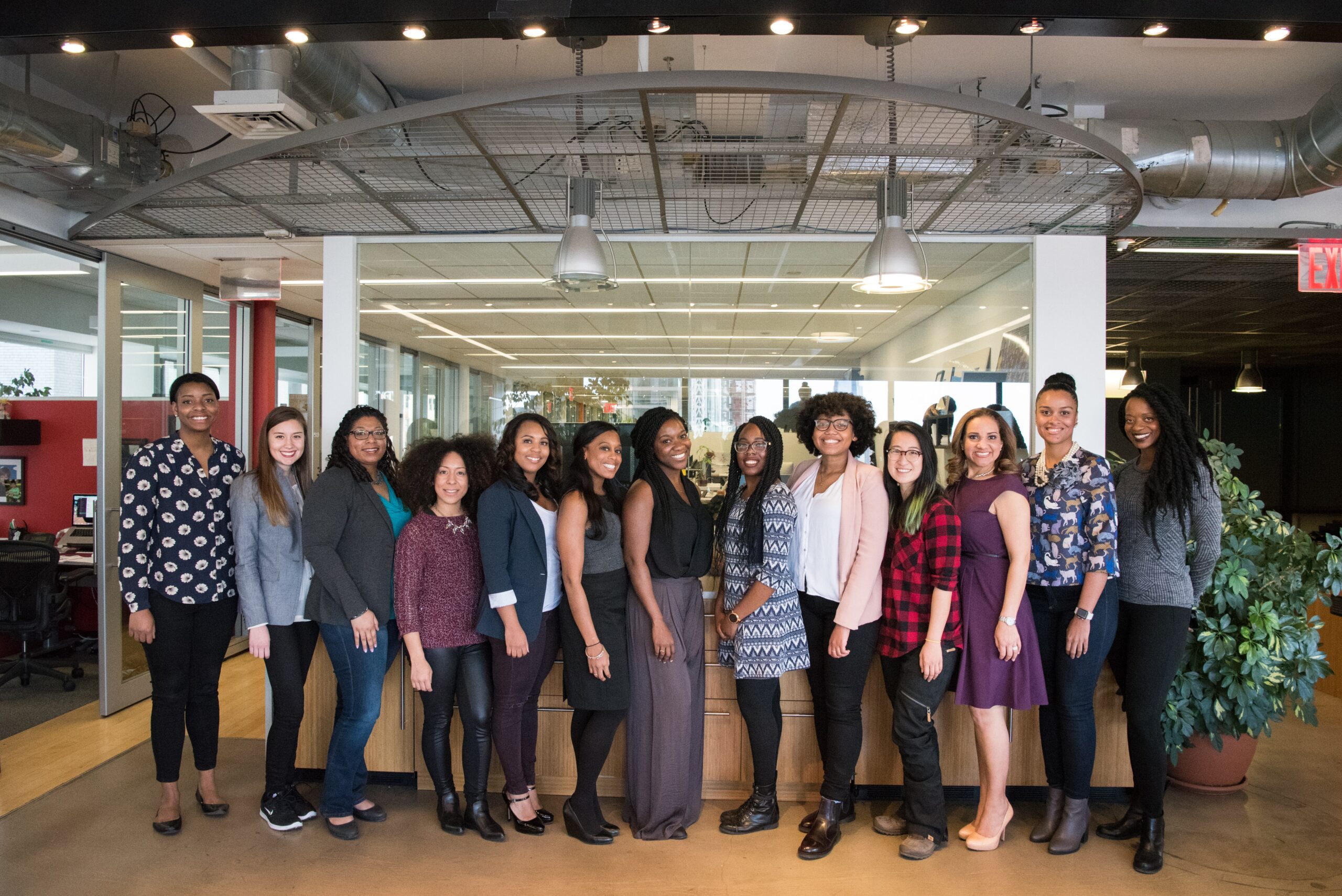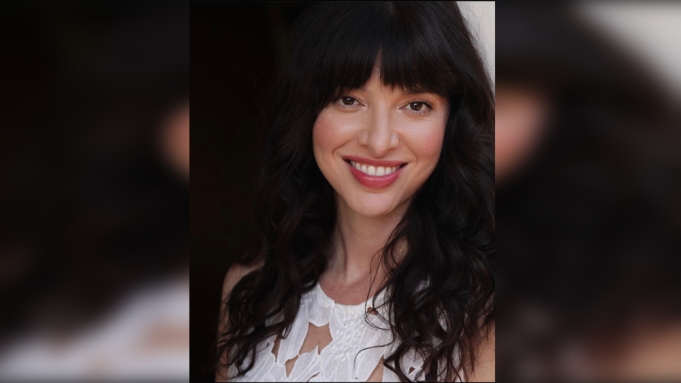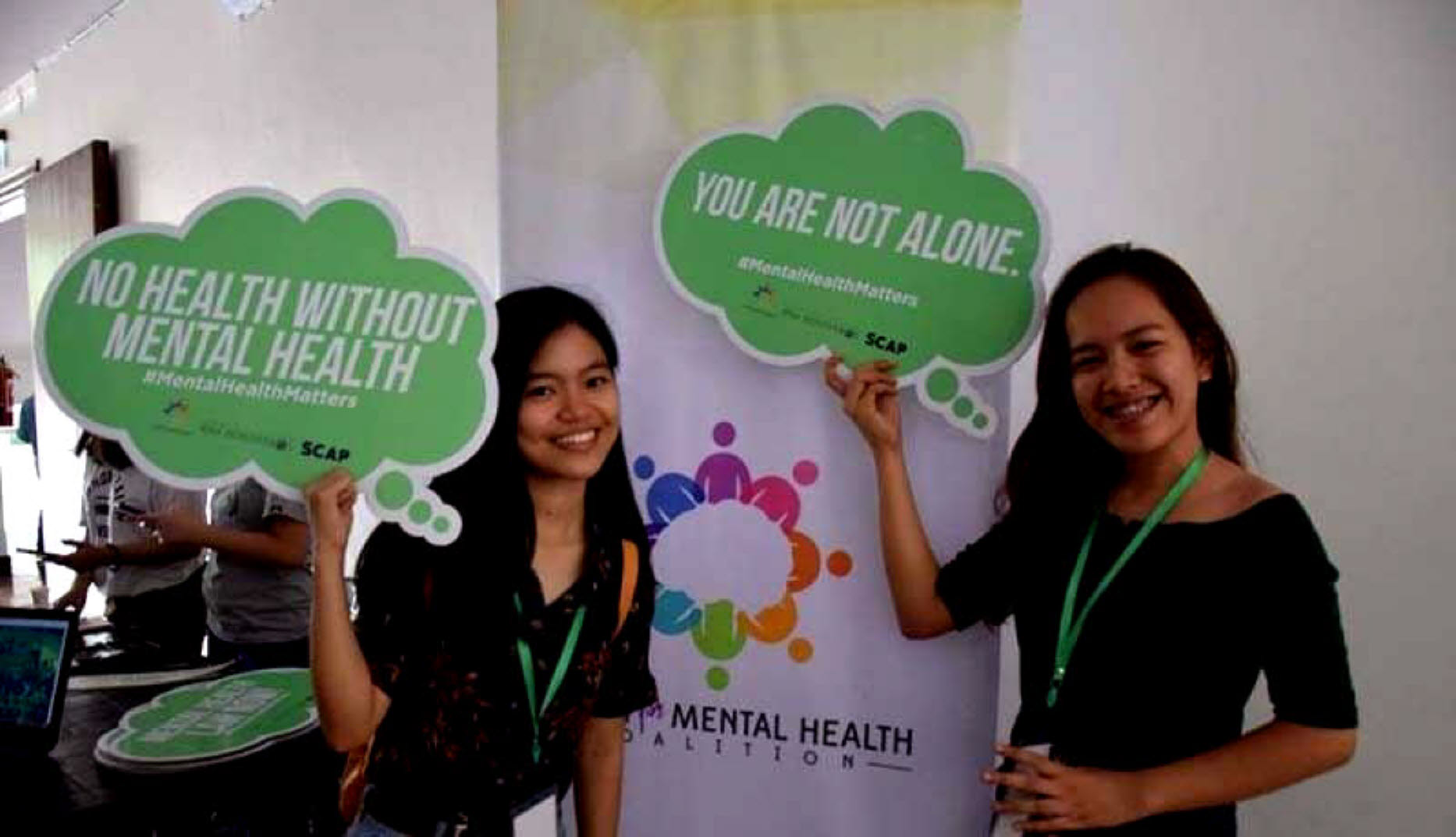
By Jenn Smith
#EducationLab engagement editor
#EducationLab is a #SeattleTimes project that spotlights promising approaches to persistent challenges in public education. The #SeattleFoundation serves as fiscal sponsor for #EducationLab, which is supported by grants from the #Bill&MelindaGatesFoundation, #Amazon, #Comcast #Washington and City University of #Seattle. Learn more about Ed Lab.
There are a lot of things you can’t do when you’re 13: vote, drive a car, legally watch an R-rated movie in a theater. But in #Washington, a 13-year-old can seek an appointment and receive #mentalhealthservices, treatment for a substance use disorder or withdrawal management support without the consent of a #parent or guardian.
The #SeattleTimes Education Lab partnered with members of King County Public Health’s #SocialMedia Ambassadors and Soar #youth programs to create a resource for young people seeking #mentalhealth support services.
As the #pandemic storms on, researchers are finding more evidence that #stress, #anxiety and #depression are having significant effects on the brains, #mentalhealth and #behaviors of #kids and #teens. For #youth who identify as #peopleofcolor, there can be added layers of challenge, from cultural taboos around discussing #mentalhealth to a lack of #therapists and #physicians of color who specialize in treating young people.
South King County #students Samira Farah, Cherlyn Ferguson, Juli Malit and Yasmin Mustefa teamed up to interview professionals from five organizations that focus on serving #communitiesofcolor. King County-area #youth workers Emma McVeigh and Devan Rogers helped make this collaboration possible.
This guide is designed to outline the steps #teens and young #adults can take to find a provider that suits their needs.
The struggle is real enough. Finding help shouldn’t have to be a hassle.
#JamesDonaldson notes:
Welcome to the “next chapter” of my life… being a voice and an advocate for #mentalhealthawarenessandsuicideprevention, especially pertaining to our younger generation of students and student-athletes.
Getting men to speak up and reach out for help and assistance is one of my passions. Us men need to not suffer in silence or drown our sorrows in alcohol, hang out at bars and strip joints, or get involved with drug use.
Having gone through a recent bout of #depression and #suicidalthoughts myself, I realize now, that I can make a huge difference in the lives of so many by sharing my story, and by sharing various resources I come across as I work in this space. #http://bit.ly/JamesMentalHealthArticle
SCAN AND SHARE
Know before you go
- The organizations interviewed offer general #mentalhealthcounseling and support services.
- For immediate help during a crisis, call 911 or visit a local emergency center. You can also contact the #KingCounty Children’s Crisis Outreach Response System at 206-461-3222 and the 24/7 Crisis Connections line at 866-427-4747. #Teens can also call the confidential #Teen Link help line at 866-833-6546 between 6 and 10 p.m., or text the same number until 9:30 p.m.
- All counseling service providers and referral organizations will collect contact information, ask you if you need language assistance, ask you if you want to involve your family and ask you if you have health insurance. Health insurance is not always necessary to receive services.
- Help can be free or low-cost. Be sure to ask about this during your intake process.
- If you are feeling nervous, most providers say it’s fine to bring a sibling or a friend to your first appointment for support. But the appointment and treatment is for and about you.
- You can ask for either a one-on-one session or a group session.
- If you don’t feel comfortable with the therapist assigned to you or the agency you’re working with, you can always switch providers or leave at any time. No feelings hurt!
Courtesy of Juli Malit
Meet the #students and the #mentalhealthservices providers they profiled
Asian Counseling and Referral Service Black Girls Smile Consejo Counseling and Referral Service Muslim Behavioral Health Network WA Therapy Fund
_____________________________
#Asian Counseling and Referral Service
#Student: Juli Malit, 17, Renton
Why #youth #mentalhealth matters to you: I’ve struggled with my own #mentalhealth over the last few years, and, worse, I’ve seen the effects of #mentalillnesses in some of my best friends. I’ve since learned the importance of good support systems and accessible #mentalhealthcare — things that many take for granted, and many #youth are at a loss for.
Why you chose to profile this organization: As an #AsianAmerican immigrant, I know of and am affected by #stigma around #mentalhealth in our community. For many AAPI (#AsianAmerican #PacificIslander) #youth, #mentalhealthcare is not only logistically difficult to come by, but it also comes with cultural barriers that make such treatments highly inaccessible.
About the organization: #Asian Counseling and Referral Service is a nonprofit that provides #behavioralhealth programs, human services and civic engagement activities for members of the AAPI community in #KingCounty and surrounding areas. Among its many services for disabled, immigrant, refugee and other community members, one standout service is its #Youth #MentalHealthCounseling program, through which #youth can find a match that works for them and their relationship to their culture.
Who you interviewed: Dillon Nishimoto, clinical manager, master of social work and licensed independent clinical social worker for #Asian Counseling and Referral Service in #Seattle
If a #youth reaches out to this organization, what will the first interaction be like?
For #children and #youth services, reach out via cyfintake@acrs.org. ACRS will confirm the youth’s contact information and schedule a call to discuss their needs and how to best match them with a service. This conversation may include asking whether or not to involve #parents, or talking about ways to fund the counseling process without parental support. The main point of this first call would be to discuss what the youth is looking for, such as which identities they would like to be matched with, or which areas in life they would need help in.
Who will the #youth be talking with?
The intake email will land in the inboxes of multiple ACRS staff members before one person will reply and make the first contact call. After discussing eligibility and needs, the organization will match the #youth with someone. In some cases, this may be the very person who made that first call.
What is the organization doing to educate #youth in the community about the #mentalhealthresources that are available?
“Often, there are reasons that #youth are not ready or not comfortable involving family members in their #mentalhealthcare, so the resources we talk about are their rights and age of consent when it comes to #mentalhealth,” Nishimoto said. ACRS works with #youth to get them to exercise these rights and find a plan of action for #mentalhealthcare that works for them.
How does the organization meet community #mentalhealth needs with intersectionality in mind — the overlaps of culture, class, age, gender, etc.? How does it approach people with cultural competency to make sure they are understood and their needs are met?
Understanding how therapist and client identities intersect or interact is an ongoing dialogue within ACRS. Walking us through a first call with #Asian Counseling and Referral Service, Nishimoto describes a question all employees picking up that phone would ask themselves about how they can best support a client: “Is there a cultural, language or other identity need? Maybe you’re looking for someone who is #LGBTQ, or specializes in #LGBTQ and is familiar with the culture and linguist needs from the Philippines?” This all happens verbally for privacy reasons, but it should not be an intimidating process. They ask these questions to better support you. Beyond this first conversation, if a match is not working out because of clashing identities, ACRS will work with the client to find a better match with a provider.
Connect: To request an intake form, send an email of interest to cyintake@acrs.org. Visit acrs.org, @acrsnews on #Instagram and #Twitter, @ACRSonline on #Facebook for more info.
Languages spoken: ACRS offers services in more than 40 languages and dialects. Language assistance services are offered free of charge.
_____________________________
#Black #Girls Smile
#Student: Yasmin Mustefa, 17, Federal Way
Why #youth #mentalhealth matters to you: With the ongoing #pandemic and #schools being closed for more than a year, #anxiety and #depression are still prevalent in #youth and more important than ever to address. I believe it is crucial for #teens to find tools to help them cope with these feelings while simultaneously connecting with other #youth to help them realize that many other young people are going through the same things as well.
Why you chose to profile this organization: As a #Black #woman, I’ve found it hard to find support for people who look like me. For many young #Black #women, it is difficult to find resources they are comfortable using due to the lack of #Black #mentalhealthprofessionals. Just as its name suggests, #Black #Girls Smile specifically focuses on providing resources such as therapy and #mentalhealth education for young #Black #girls to encourage young #Black #women to reach for help.
About the organization: #Black #Girls Smile is a nonprofit organization that focuses on the #mentalhealth of young #Black #women and #girls. Through #mentalhealth literacy workshops and therapy scholarships, the organization aims to empower the mental well-being of #Black #women.
Who you interviewed: Lauren Carson, founder of #Black #Girls Smile
If a #youth reaches out to this organization, what will the first interaction be like?
Intersectionality workshops and therapy scholarships are two ways #youth can reach out for help. The workshops focus on where #mentalwellness and issues for #Black #women intersect, like sexual health or college preparation. The workshops are free because Carson says she doesn’t want young #women to face a financial burden in accessing a range of support.
Therapy scholarships provide the financial opportunity for #youth to work with a #mentalhealthprofessional. To obtain this service, the first step is to fill out an interest form with your email address and contact information for the provider. Carson said applicants under age 23 are prioritized. “From there, we try to make it really easy when we reach out to the provider. We don’t want there to be any financial burden and want to increase the access as much as possible for the young #women a part of our programs,” she said.
When a #youth reaches out to this organization, who will they be talking with?
#Black #Girls Smile has a small team, so Carson says “a lot of the engagement and communication is still coming from me.” She says she tries to be as agile and responsive as possible in assisting those who reach out. If #Black #Girls Smile is unable to meet the needs of a young #woman or #girl who reaches out, Carson directs them to BSG partner organizations, such as Pretty Brown #Girl, a national organization which supports the social-emotional learning and self-esteem of #girls and young #women who identify as #Black or brown.
What is the organization doing to educate #youth in the community about the #mentalhealthresources that are available?
#Facebook and #Instagram are the biggest platforms used to engage with #youth. The BGS workshops are offered for free and listed on #socialmedia or on their website. “We try to make it as easy as possible to sign up for workshops, to participate in workshops and programs,” Carson said.
If a #youth member in your community came to this organization during a #mentalhealthcrisis, what steps would be taken to ensure they received the treatment they needed?
#Black #girls and young #women facing an immediate crisis can text the word “SMILE” to the national crisis text line, 741741. That code helps identify that a #Black #girl is in crisis and needs culturally responsive support.
How does the organization meet community #mentalhealth needs with intersectionality in mind — the overlaps of culture, class, age, gender, etc.? How does it approach people with cultural competency to make sure they are understood and their needs are met?
“We are taking into account the experiences, the voices, the cultural considerations, gender responsiveness of #women and #girls of color,” says Carson. Carson points out that the #Black #Girls Smile board and its network of advisers, partners and contractors are made up of women of color. “We try to really espouse working to uplift and empower young #Black #women in all capacities. I think when you bring that intentionality to the table, hopefully really felt by our participants within our programs and initiatives,” she said.
Connect: blackgirlssmile.org, contact@blackgirlssmile.org, 347-669-4229, @blackgirlssmile on #Instagram, #Twitter and #Facebook
Location: Remote services are available nationally.
Language spoken: English
_____________________________
Consejo Counseling and Referral Service
Student: Cherlyn Ferguson, 16, Seattle
Why youth #mentalhealth matters to you: Having my own struggles with #mentalhealth and friends who share similar issues, I hear a recurring sentiment of wanting help but not knowing where to find it. In these same conversations, we share concerns of familial understanding and approval of said #mentalhealthresources. Finding organizations that work with these barriers is essential to strengthening my relationship with myself and with others.
Why you chose to profile this organization: Consejo’s ability to tackle a variety of services/treatments for #Washington-based #Latino communities is admirable. With 40 years of experience and growth, Consejo has developed many successful locations and electronic services, making it easily accessible both physically and digitally.
About the organization: Consejo has been providing the #Latino communities in #WashingtonState with #behavioralhealth-based counseling and referral services for the past 4 decades. Consejo aims to aid their clients through “culturally competent services designed to address the diverse needs of #adults, #children, #adolescents and families in the #Latino community.”
Who you interviewed: Consejo staff
If a #youth reaches out to this organization, what will the first interaction be like?
When a #youth reaches out to Consejo to request services, a staff member fluent in both #English and #Spanish will help the individual determine how Consejo can assist them with #mentalhealth or substance use counseling.
The organization will offer the #youth an initial assessment appointment at an agreed-upon location including the youth’s #school, community or at one of Consejo’s offices. The interaction will be confidential and in a private setting. The youth will let a staff member know what is happening in their lives including #school, family and social situations. The #youth can expect to be asked for his or her insurance card, and additional questions such as contact information. It is important for the #youth to know that if they do not have health insurance, Consejo can still provide services free of cost.
When a #youth reaches out to this organization, who will they be talking with?
When a #youth calls the main number, 206-461-4880, they will speak with a front desk staff member. These individuals speak fluent #Spanish and #English, and can help direct the #youth to the service they are seeking. If the #youth wants to start therapy or substance abuse counseling, they can simply tell the front desk staff, and they will be transferred to someone who can schedule them right away.
What is the organization doing to educate #youth in the community about the #mentalhealthresources that are available?
Consejo works closely with #youth and their families to provide a variety of programs specializing in outpatient #behavioralhealthservices and school-based #mentalhealth therapy, individual therapy, group therapy, case management, psychiatric care, substance abuse outpatient recovery services, sexual assault counseling, #domesticviolence advocacy, peer mentorships, support groups, and #youth violence prevention. Consejo also focuses on outreach in our communities to educate #youth and their families about #mentalhealth and substance abuse challenges and the significance of a safe and culturally responsive environment.
In addition, Consejo’s APOYO program focuses on high-risk #youth who may have been negatively impacted by the criminal justice system. Consejo’s goal is to target system navigation and trauma-informed care so youth can feel empowered and supported to reach their full potential.
If a #youth member in your community came to this organization during a #mentalhealthcrisis, what steps would be taken to ensure they received the treatment they needed?
A #youth would be evaluated to see the need and severity of the crisis. For example, it would make a difference to find out whether they are experiencing suicidality, substance withdrawal or abuse. “We will take the proper steps to ensure that the #youth is connected with the proper treatment — this in itself can mean that they work with a #mentalhealth or substance use counselor to de-escalate the crisis; or we may need to contact 911 so that the #youth can be taken to the hospital/care facility that is most appropriate if more intense care is necessary — the parent or guardian would be notified as confidentiality applies,” Consejo staff say. “As mandated reporters, we also take the proper steps in reporting abuse and specific safety concerns. In addition, it is part of our care protocol to collaborate with other providers in order to provide the best care to our clients. Our priority is always safety first.”
How does the organization meet community #mentalhealthneeds with intersectionality in mind — the overlaps of culture, class, age, gender, etc.? How does it approach people with cultural competency to make sure they are understood and their needs are met?
“The demographic we serve are primarily individuals and families ranging from #children, #adolescents, to #adults of the #Latino/#Hispanic and #Spanish-speaking communities. In some locations, there are staff that provide services in other languages such as Portuguese,” according to staff. Consejo works with internal and external providers to address social determinants of health. Consejo works with #BastyrUniversity and Swedish Family Medicine to provide naturopathic services and primary care services to Consejo’s clients. “Our approach to cultural competency is to ensure Consejo staff promotes acceptance, security, growth and empowerment to all for clients to participate in their communities at the highest level of functioning.”
Connect: consejocounseling.org, @consejocounseling on #Instagram, 206-461-4880.
Location of services: Remote and in-person services available.
Languages spoken: Spanish, English
_____________________________
#Muslim #BehavioralHealth Network
#Student: Samira Farah, 23, Renton
Why #youth #mentalhealth matters to you: Witnessing the #youth in my community struggle to find healthy outlets or resources has ignited my passion for #mentalhealth work.
Why you chose to profile this organization: As a young Somali-#Muslim woman, I find that my community lacks in #youth #mentalhealthresources due to cultural barriers and limited knowledge. The #Muslim #BehavioralHealth Network (MBHN) is breaking through these barriers by uniquely combining networking and culturally aware community-based psychoeducation to ensure #mentalhealth needs are met.
About
https://standingabovethecrowd.com/?p=8898





